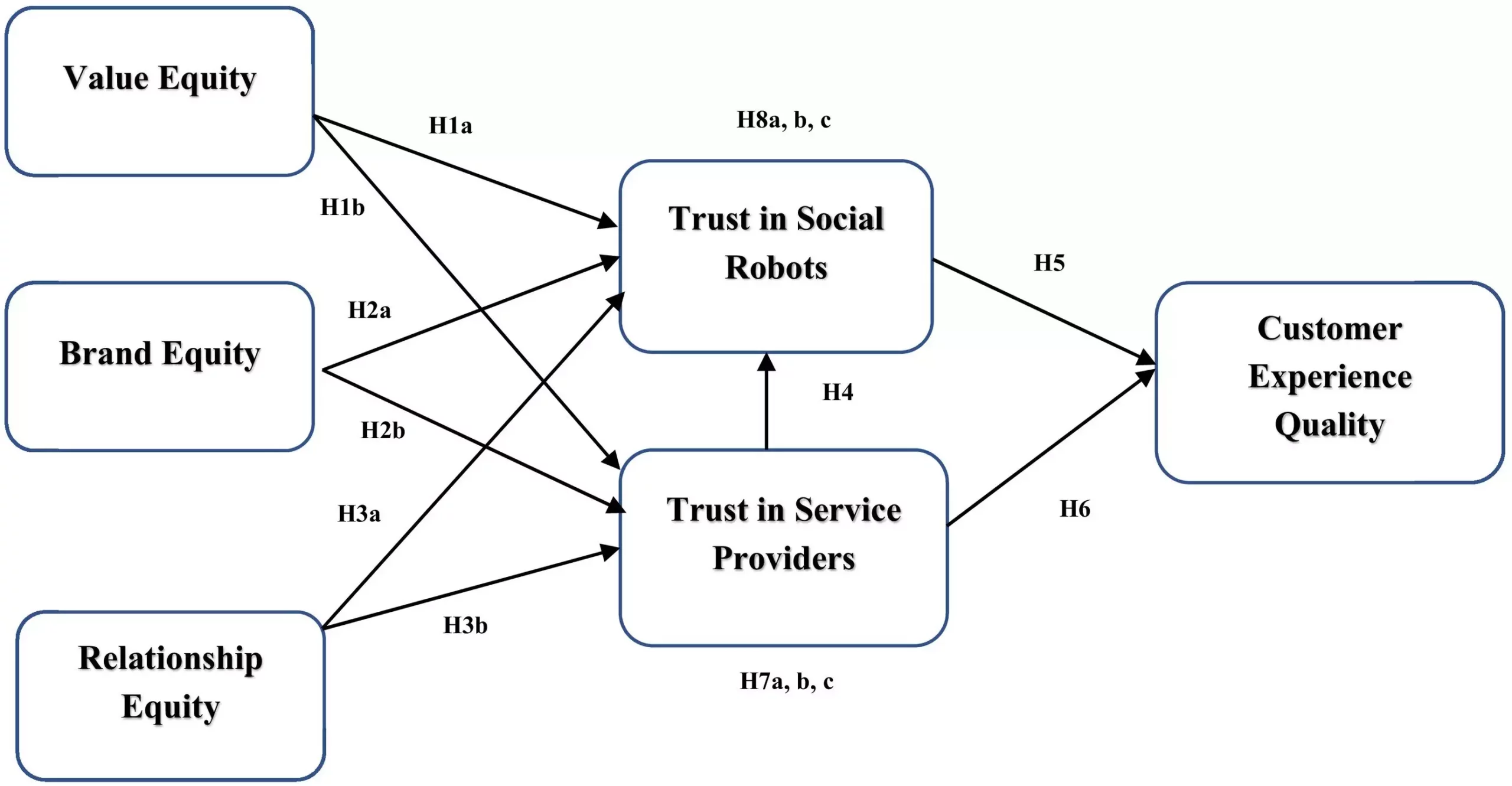The increasing integration of artificial intelligence and social robots in commercial settings has sparked numerous discussions and debates. However, a recent study conducted by Marketing and Service Science Professor Sanjit Roy from Edith Cowan University shed light on the potential benefits of using social robots in customer service interactions. This study focused on the relationships among customer equity drivers such as value equity, brand equity, and relationship equity, trust in social robots, and trust in service providers.
Professor Roy emphasized that the rise of social robots in retail aligns with the Industry 5.0 principles, which promote collaboration between humans and machines for enhanced productivity and customer satisfaction. Social robots have demonstrated their ability to serve as entertainers, social facilitators, friends, and mentors to customers, showcasing their supportive and emotional attributes.
The research highlighted the diverse functions and roles that social robots can perform in a commercial setting, ranging from handling repetitive tasks to assisting in complex cognitive assignments. Social robots have proven effective in tasks such as object transportation, assembly jobs, and even identifying medical conditions like dementia in patients. Additionally, they are finding advanced applications in professional domains like financial auditing and surgical procedures, revolutionizing the way services are delivered and enhancing productivity.
Businesses stand to benefit significantly from the integration of social robots, as they can improve customer service efficiency and effectiveness, leading to enhanced perceived value equity. Trust between customers and social robots is established through the value provided by these robots, which in turn influences customers’ perceptions and interactions with service providers. Successful human-robot interactions lay the foundation for a robust relationship and build trust over time, fostering a positive customer experience with social robots.
Despite the value that social robots bring to customer service interactions, Professor Roy acknowledged challenges related to replacing human employees with robots. The lack of authenticity and warmness that human employees provide could potentially reduce relational benefits. However, this limitation may be overshadowed by the efficiency and convenience that social robots offer to customers in various industries.
The study emphasized the importance of trust in service providers in shaping customers’ trust in social robots. Customers who lack direct experience with technology, including social robots, rely on their perceptions of the service provider to determine the level of trust they place in social robots. Building trust with customers through transparent and reliable services, consistent communication, and delivering on promises can positively influence their experiences with social robots.
To optimize customer experiences with social robots, businesses should focus on enhancing relationship equity and brand equity. Emphasizing brand identity and fostering long-term customer relationships can lead to greater trust, thereby positively impacting customers’ perceptions of social robots. Trust-building initiatives, transparent communication, and consistent service delivery are essential for reinforcing trust and improving customer experiences with social robots in commercial settings.
The integration of social robots in customer service interactions presents a wealth of opportunities for businesses to enhance customer experiences and improve operational efficiency. By understanding the role of customer equity drivers and the importance of trust in service providers, businesses can leverage social robots to create seamless and engaging customer interactions. Fostering trust and prioritizing relationship and brand equity will be crucial in successfully implementing social robots in commercial settings.


Leave a Reply